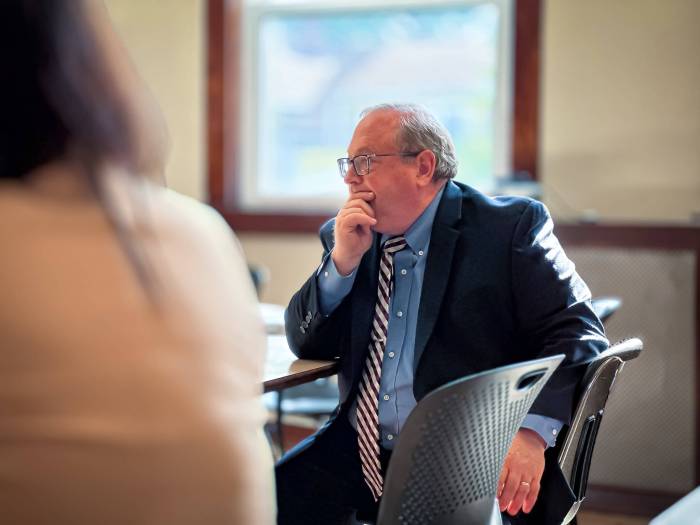Mitt Romney's VP pick, Wisconsin Congressman Paul Ryan. | US CONGRESS
“I don’t know why we are spending all this time talking about this,” Wisconsin Congressman Paul Ryan told “Meet the Press” host David Gregory when asked his view of marriage equality earlier this year. “Actually, I came on to talk about the debt crisis we have and the budget.”
Gay and lesbian Americans might be excused a bit of impatience with the impatience voiced by the presumptive Republican vice presidential nominee, especially since, in the same response, he issued unambiguous support for his home state’s constitutional amendment barring same-sex couples from marrying.
But as news of his choice as Mitt Romney’s running mate broke this past weekend, many pundits interpreted Ryan’s answer to Gregory as a sign that he was a serious economic conservative with little interest in contesting divisive social issues. That conclusion, however, assumes that conservatives fall neatly into discrete categories. It also ignores a Washington record that demonstrates that Ryan’s thinking was largely forged from the same social conservative mold that continues to have a nearly iron grip on the national Republican Party.
In 14 years in the House, Ryan has shown only a single instance in which he stood with the LGBT community. In 2007, he was one of 35 House Republicans to vote for the Employment Non-Discrimination Act, though that version included protections based on sexual orientation alone, not gender identity and expression as well. The Log Cabin Republicans, in a statement praising Ryan’s selection, pointed to the ENDA vote as a sign he is a “fair-minded policymaker” and urged Romney to borrow that “page out of his running mate’s playbook.”
It’s not unreasonable to conclude that the gay GOP group is simply working hard to make lemonade out of a bushel mostly full of lemons. Ryan did vote for ENDA –– just minutes after he voted against it. As the House Democrats appeared on the verge of success, die-hard Republican opponents of gay rights trotted out a parliamentary maneuver known as a motion to recommit, a procedure that would have killed the measure. Ryan dutifully voted his party’s anti-gay position.
The Wisconsin Republican –– who captured the Tea Party’s heart by using his perch as chair of the House Budget Committee to push a draconian budget that imperils Medicare and rewards the GOP’s wealthy patrons — has also voted twice in favor of a federal constitutional amendment that would ban marriage by same-sex couples in all 50 states. He opposed repeal of the military’s Don’t Ask, Don’t Tell policy and the federal hate crimes law. He voted against needle exchange programs shown to save lives in the fight against HIV, tried to exempt faith-based charities from observing state and local gay rights ordinances, and supported efforts to end gay adoption and curtail a domestic partner registry in Washington, DC.
The Log Cabin Republicans claim Ryan has shown a “consistent willingness to engage with” them “on a range of issues.” Given that less than three-dozen Republicans supported the final ENDA vote in 2007, Ryan is clearly somewhat more hospitable to the Log Cabin message than the vast majority of his GOP colleagues.
But that really says more about the state of the Republican Party on Capitol Hill than it does about Ryan. Two and three years later, he was still unmoved on easy questions like hate crimes protections and allowing every American willing to die for their country to do so. Log Cabin can pick at President Barack Obama’s shortcomings on LGBT progress, but the effort to trumpet Ryan as a bold step forward for the LGBT community is laughable.
What Ryan really adds to the Romney ticket is accountability. The former Massachusetts governor has dodged spelling out the details of his economic vision with the curious argument that doing so would only give the president something to beat him up over. Romney will no longer have the luxury of vagueness.
Ryan’s fingerprints are all over the Republicans’ most regressive economic proposals in Washington. Romney can tell “60 Minutes” that he –– and not his second –– will be the decider, but in selecting Paul Ryan, he can no longer be 2012’s Manchurian candidate. The Republican ticket will have to explain the Ryan budget to the American voters this November.


































